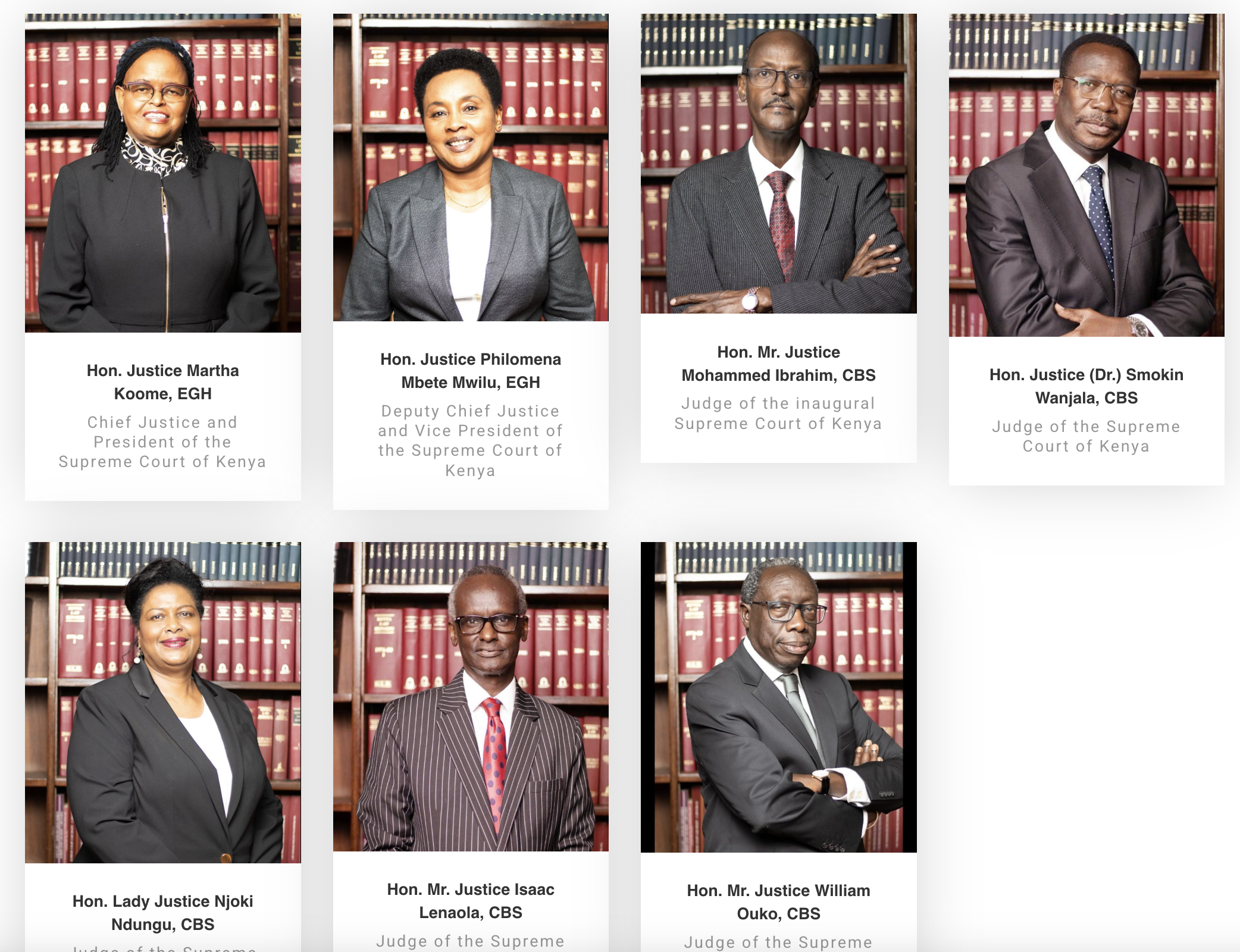
To: The Chief Justice and Honorable Justices of the Supreme Court of Kenya
From: A Concerned Citizen of the Republic
Date: May 26, 2025
Subject: Language, Conduct, and Unanswered Questions in the 2022 Presidential Election Ruling
Your Ladyship and Your Lordships,
I write to you with deep respect for your constitutional role, and with profound concern for the future of justice in our republic. The Supreme Court of Kenya stands as the highest judicial authority, entrusted by the people to speak with clarity, impartiality, and integrity—especially in matters that touch the very soul of our democracy.
And yet, in the 2022 presidential election petition, the Court’s language fell far short of the dignity, restraint, and fairness the nation expected. In delivering your ruling, you used phrases such as “hot air,” “wild goose chase,” and “fishing expedition” to characterize the petitioners’ case. These were not legal findings—they were rhetorical dismissals. They did not clarify the law—they mocked those who came seeking it.
This is not a protest against the outcome of the case. This is a protest against how that outcome was delivered. When the highest court adopts a tone of ridicule toward citizens exercising their right to seek justice, it does not just close a legal case—it wounds public confidence in the institution meant to protect the Constitution.
A Judgment by All, A Tone Shared by All
The Court’s ruling was unanimous, issued collectively by Chief Justice Martha Koome, Deputy Chief Justice Philomena Mwilu, and Justices Mohamed Ibrahim, Smokin Wanjala, Njoki Ndung’u, Isaac Lenaola, and William Ouko. Not a single justice has, to date, dissociated themselves from the language used. Not one has clarified or objected. By that silence, the entire bench now owns that tone—and the injury it caused.
This is gross. It is cross. And it is wrong.
Theories the Public Deserves You to Address
The Supreme Court does not operate in a vacuum. It functions within a nation, in full view of its people—and the world. And when its conduct raises suspicion, it must answer for it. Today, I respectfully raise the questions that millions of Kenyans are silently asking, and that the Court has a duty to confront:
1. Why did the Court appear so hostile toward the opposition petitioners? Was this rooted in frustration? Or was it an expression of political undercurrents never acknowledged?
2. Was there residual anger toward the outgoing President Uhuru Kenyatta—whose past disagreements with the judiciary were well known—and did that animosity spill over into your treatment of his preferred candidate?
3. Was there any undue influence, political pressure, or unethical engagement behind the scenes? Specifically, was the then-President-elect William Ruto involved in any form of compromise or coercion that might explain the Court’s tone and posture?
4. Were there internal disagreements among the bench that were suppressed in favor of a forced unanimity?
5. And finally, why was the tone of a constitutional judgment delivered as if it were a partisan editorial, rather than a measured and reasoned decision expected of a Supreme Court?
A Crisis of Confidence—and a Call for Accountability
These questions do not undermine the judiciary—they demand its renewal. The people of Kenya entrusted you with the solemn duty of standing above politics, pressure, and pettiness. But in that moment, the Court came across as dismissive, not dispassionate, combative, not constitutional.
Justice must not only be done—it must be seen to be done. And justice mocked is justice denied.
What Must Happen Now
- The Supreme Court must reflect and respond—not with defensiveness but courage.
- It must clarify whether the language used in the ruling reflects its enduring standard, or a one-time failure in tone.
- It must acknowledge that, at the very least, the judgment’s language caused hurt, confusion, and public disillusionment.
- It must recommit to the principles of judicial restraint, impartiality, and civility—especially when handling matters of national destiny.
Let the 2022 election ruling be the last time our highest court sounds more like a political platform than a temple of justice. Let this moment spark institutional introspection, not public alienation. Let the judiciary rise again to the sacred expectations the Constitution and the people placed upon it.
Kenya deserves better. Justice demands better. The Supreme Court must be better.
With respectful concern and unwavering hope for our democracy,
Cege Wa Mahiga
A concerned Kenyan
